However, up to now, the Ministry of Home Affairs has not yet agreed on the division of responsibilities for recruiting and using civil servants in the education sector, forcing many localities to find temporary solutions to "patch" the gap.
Work and wait
Mr. Ta Hong Dien - Vice Chairman of the People's Committee of Cu M'ta Commune (Dak Lak) said that the commune has sent a document to departments, branches and the Provincial People's Committee to ask for instructions on recruiting additional staff for the 2025-2026 school year, to ensure teaching requirements. However, up to now, the responsibility for recruiting and using educational officials has not been clearly defined between the People's Committee of the commune or the Department of Education and Training.
“Next school year, the commune will lack 16 teachers, including 4 preschool teachers, 9 primary school teachers and 3 secondary school teachers. Due to the lack of specific instructions, the locality is forced to work while waiting for instructions from higher levels,” said Mr. Dien.
In order not to be passive, the People's Committee of Cu M'ta commune has built an open plan for the 2025-2026 school year. According to Mr. Dien, no matter how difficult it is, when entering the new school year, it must be ensured that: "If there are schools, classes, and students, there must be teachers."
The commune leaders have instructed school principals, from kindergarten to junior high school, to proactively use the assigned staff and contract with qualified people according to regulations to have enough teachers in class.
To solve this problem, Mr. Dien said that schools are currently basing on the quota assigned by the Department of Home Affairs to the People's Committee of M'Drắk district (old) of 56 positions, from which they will implement contracts. "In case the quota is exhausted but teachers are still needed, the commune will temporarily assign the principal to sign a contract according to Decree 111/2022 to ensure teaching activities. When there is a specific decision on decentralization, the locality will adjust according to regulations," Mr. Dien informed.
Similarly, Mr. Tran Van Vuong - Head of the Department of Culture and Society of Thuan An commune (Lam Dong) commented that localities need to flexibly apply current legal documents to recruit and contract teachers, especially at the preschool level when implementing universal education for children aged 3-5.
Mr. Vuong analyzed that the biggest "stuck" point is the overlap between the Law on Organization of Local Government and Decree 142/2025 of the Government (effective from July 1, 2025). "According to regulations, the Law on Organization of Local Government has higher legal effect, the Commune People's Committee needs to proactively apply it to ensure human resources for educational institutions," Mr. Vuong emphasized.
At the same time, with many years of experience in managing the education sector, Mr. Vuong noted: “From January 1, 2026, the Law on Teachers will officially take effect, assigning the responsibility of recruiting and using teachers to the Department of Education and Training. Meanwhile, according to the Law on Organization of Local Government, this task belongs to the People's Committee of the commune. Therefore, it is necessary to soon have specific instructions for the period from now until December 31, 2025, to avoid gaps affecting teaching and school management.”
Sharing the same view, Mr. Pham Ngoc Hai - Secretary of the Party Committee of Tay Khanh Son commune (Khanh Hoa) informed that the Standing Committee of the commune has agreed to let the People's Committee of the commune direct schools to review the teaching staff.
If there is a shortage, the commune will proactively organize recruitment or contracts according to regulations. “The commune has 5 schools (2 kindergartens, 1 primary school and 2 primary - secondary schools). The commune People's Committee Chairman has reported the plan to his superiors. We will not have a shortage of teachers in the new school year,” Mr. Hai affirmed.
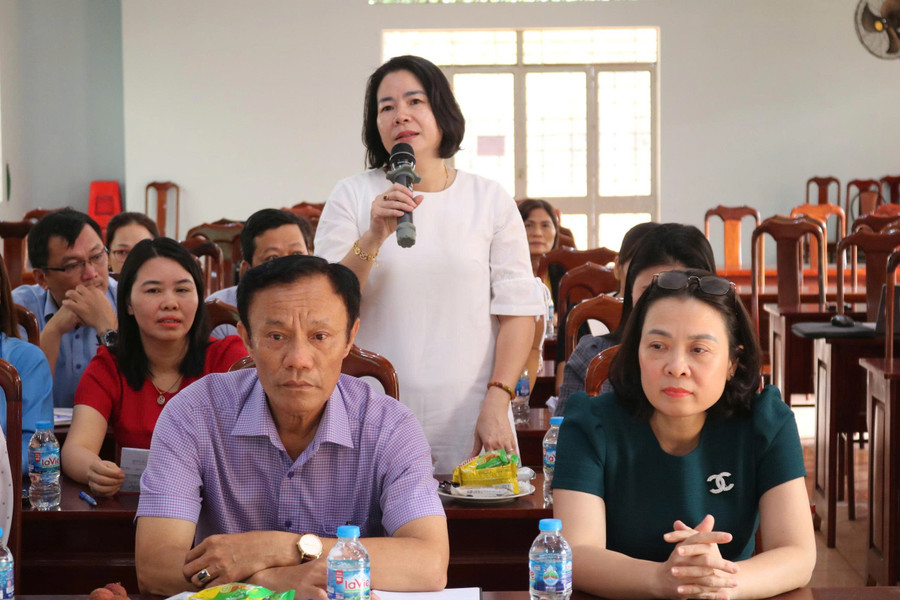
The Ministry of Home Affairs has not yet finalized the plan.
On July 25, in a document responding to the Dak Lak Provincial Department of Home Affairs regarding difficulties in implementing the two-tier government model, the Ministry of Home Affairs said it had received many similar opinions from localities. The Department of Local Government is advising the Ministry to issue unified guidelines nationwide.
Specifically, regarding the authority to appoint principals and vice principals of kindergartens, primary schools and secondary schools (established by the People's Committee of the commune), the Ministry of Home Affairs cited Article 23 of the Law on Organization of Local Government 2025 (Clause 10) stipulating: "The Chairman of the People's Committee at the commune level decides to appoint, dismiss, transfer, and remove the heads and deputy heads of specialized agencies, other administrative organizations, and public service units under the People's Committee".
However, Decree 142/2025/ND-CP (Point b, Clause 4, Article 40) stipulates the responsibility of the Department of Education and Training: "Implement recruitment, management, use, appointment, promotion of professional titles, training, fostering, and evaluation of teachers, managers, civil servants and employees in public educational institutions in the province according to regulations".
In addition, Clause 4, Article 41 of the Decree only assigns the People's Committee at the commune level to manage personnel and policies for community learning centers, not covering all public educational institutions.
This creates contradictions and overlaps in management authority. According to Article 58 of the Law on Promulgation of Legal Documents, in cases where documents have different provisions, the document with higher legal effect must be applied.
Regarding this issue, leaders of the Departments of Education and Training of Khanh Hoa, Dak Lak and Lam Dong all affirmed that before the Law on Teachers takes effect, the Ministry of Home Affairs and the Government need to soon issue a unified document for synchronous implementation nationwide, avoiding the situation where each commune and province applies a different model, causing difficulties for schools in preparing staff for the new school year.
At the same time, it is recommended that, to ensure long-term stability, central ministries and branches should soon issue guiding documents and adjustments between the Law on Teachers and the Law on Organization of Local Government. Because currently, only high school level is stable in terms of decentralization of state management.
In the 2025-2026 school year, many localities in the Central Highlands and South Central Coast will lack teachers. The recruitment of personnel has not yet been clearly defined as the authority of the Department of Education and Training or the People's Committee at the commune level. While waiting for the Ministry of Home Affairs to issue unified guidelines, localities will proactively apply current documents to ensure enough teachers before the new school year begins.
Source: https://giaoducthoidai.vn/chua-phan-dinh-trach-nhiem-tuyen-dung-giao-vien-tim-giai-phap-va-khoang-trong-post742169.html





![[Photo] Science and Technology Trade Union honors exemplary workers and excellent union officials](https://vphoto.vietnam.vn/thumb/1200x675/vietnam/resource/IMAGE/2025/9/17/842ff35bce69449290ec23b75727934e)


![[Photo] General Secretary To Lam chairs a working session with the Standing Committee of the Government Party Committee](https://vphoto.vietnam.vn/thumb/1200x675/vietnam/resource/IMAGE/2025/9/17/cf3d855fdc974fa9a45e80d380b0eb7c)
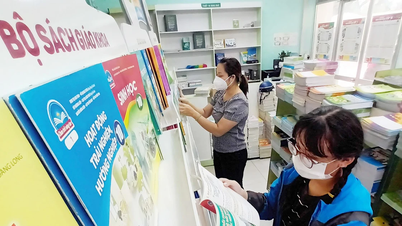







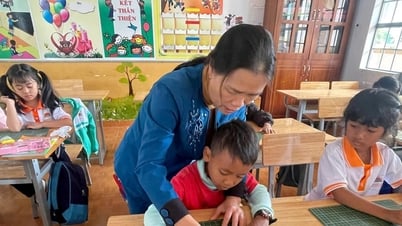


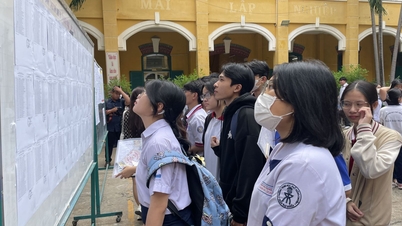
























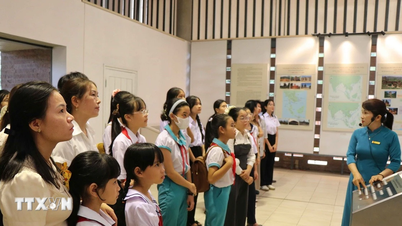









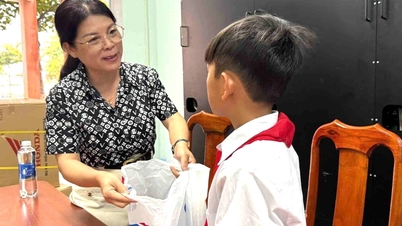
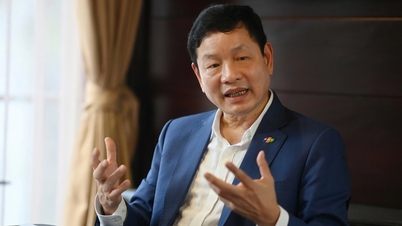

















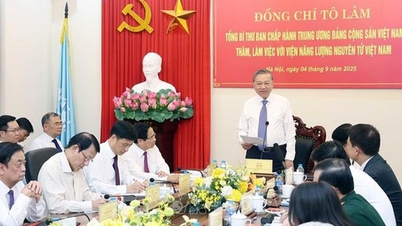

































Comment (0)